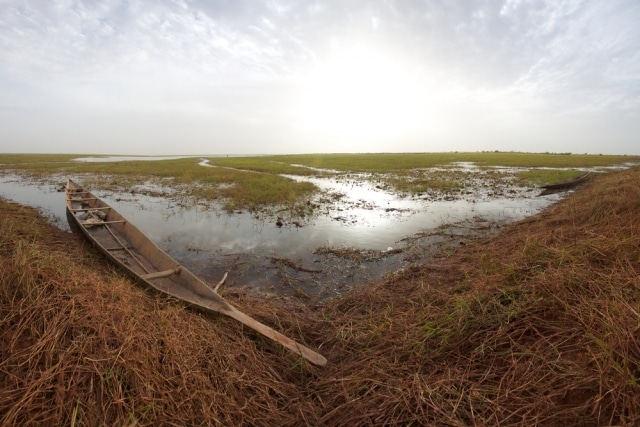Late last year, it came to light that Shell had been warned repeatedly by its own staff that the Trans Niger Pipeline was at significant risk of failure well before a 2008 spill of 500,000 barrels of oil. It was also revealed that Shell had drastically understated the extent of the spill.
These revelations were made during the proceedings of a lawsuit brought by a group of 15,000 Nigerians over a second spill from the same pipeline and helped lead to a much heftier payment by the company to the Bodo community in the Niger Delta in compensation for the impacts of both spills.
It would appear that the company has still not managed to correct whatever problems are leading to its poor safety and environmental performance in Nigeria, however, as Shell was responsible for more than 200 oil spills in the country last year alone, according to a new report by Amnesty International.
As horrible as Shell’s record is, Italian oil giant ENI managed to outdo the Hague-based multinational oil and gas titan. ENI‘s operations caused nearly 350 spills last year even though it operates in a much smaller area, the report states.
“These figures are seriously alarming. ENI has clearly lost control over its operations in the Niger Delta. And despite all its promises, Shell has made no progress on tackling oil spills,” Audrey Gaughran, Amnesty International’s Global Issues Director, said in a statement.
“In any other country, this would be a national emergency. In Nigeria it appears to be standard operating procedure for the oil industry. The human cost is horrific — people living with pollution every day of their lives.”
The companies claim that they only spilled 30,000 barrels in all of 2014, and “blame sabotage and theft for the majority of the spills.” But the Amnesty report does not give these assertions much credence: “This claim is hotly contested by communities and NGOs and has been shown to be wrong.”
Gaughran goes on to say that the level of scrutiny applied to the two spills in Bodo was extraordinary, yet that’s what it would take to determine the true extent of Shell’s financial liabilities in Nigeria.
But holding Shell accountable is about more than just forcing it to pay up for the damage it’s done — it’s also about “a very serious human issue.”
“Shell is cheating people out of just compensation,” Gaughran says. “The Bodo case makes clear just what it takes to get this company to own up to the truth about oil spills — six years and UK court proceedings. What about all the hundreds of other communities this company has potentially cheated?”
Incredibly, ENI’s 350 spills in 2014 is down slightly from previous years. The company caused over 500 spills in 2013 and around 475 in 2012, prompting Amnesty International to call for both the Italian and the Nigerian governments to take “urgent action” in curtailing the company’s negligent practices.
The report notes that under Nigerian law, the companies are responsible for stopping and cleaning up spills, as well as remediating the affected area, though “this rarely happens” and as a result, “people living in the Niger Delta are living with the cumulative impacts of decades of pollution.”
Gaughran laid out some basic steps that would begin to address the problem: “As a matter of priority all oil firms in Nigeria must urgently disclose the age and condition of their infrastructure, carry out reviews of their operating practices, and make the findings public so that communities know what is going on.”
Image Credit: Watchtheworld / Shutterstock.com
Subscribe to our newsletter
Stay up to date with DeSmog news and alerts







